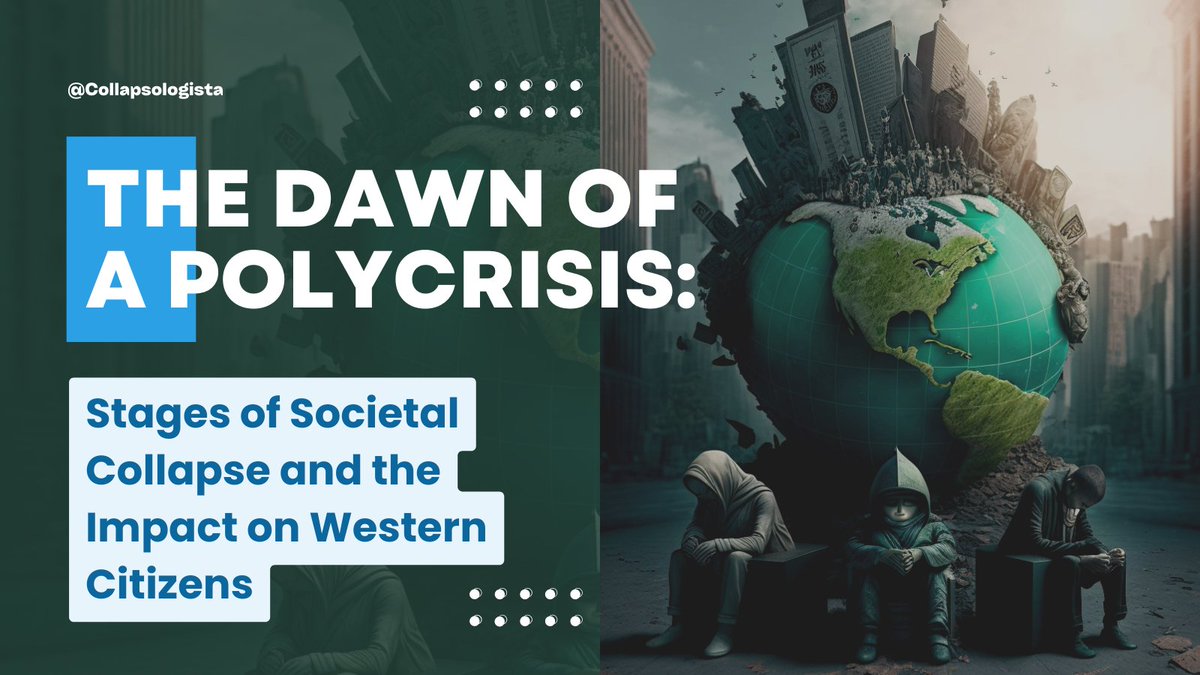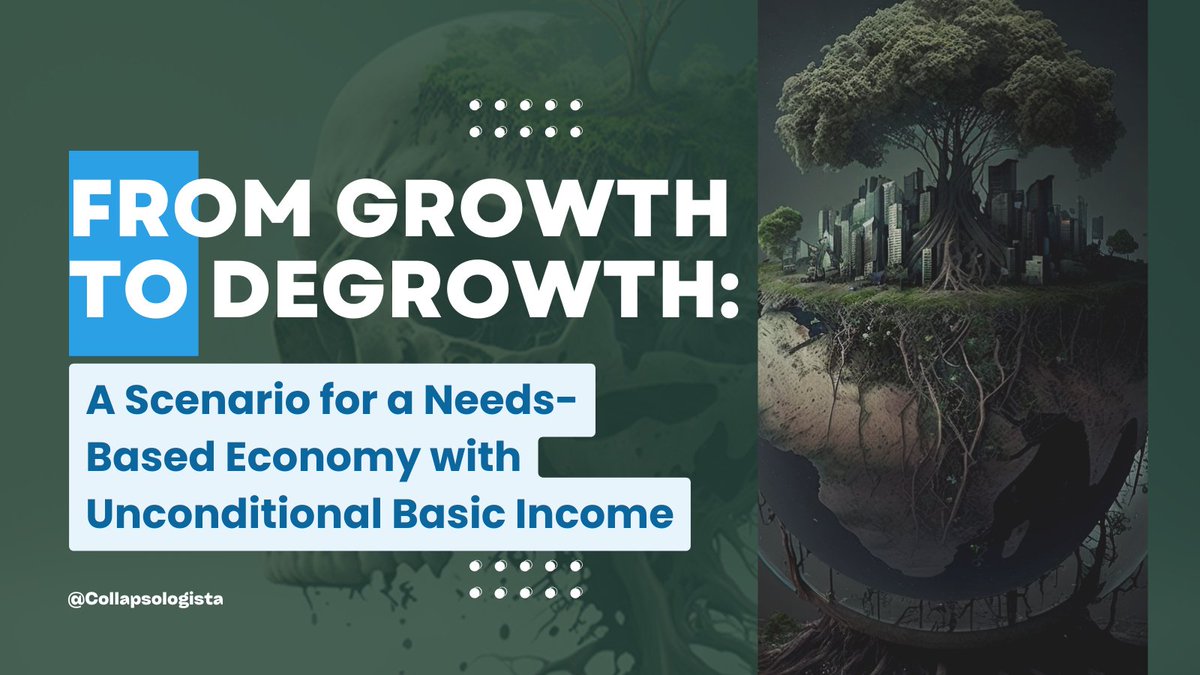🧵The current global energy crisis, characterized by a heavy reliance on fossil fuels, has led to serious concerns about climate change and the potential collapse of human civilization. Renewable energy sources, such as solar, wind, and hydro power, have been proposed as an👇
1/n
1/n

alternative to traditional energy sources in order to mitigate environmental damage and ensure a sustainable future. While renewable energy offers significant benefits, it is essential to consider the challenges associated with its large-scale adoption. This thread explores the👇
problems of transitioning to renewable energy, examining its limitations, and questioning whether it can truly serve as a sustainable alternative to fossil fuels.
Scaling Problem
One of the major challenges of renewable energy is the issue of scaling, as the current 👇
3/n
Scaling Problem
One of the major challenges of renewable energy is the issue of scaling, as the current 👇
3/n

infrastructure is inadequate to meet the growing global demand for energy. This has led to an imbalance in energy generation and distribution, with many areas facing energy shortages or relying on fossil fuels as a supplementary source. 👇
4/n
4/n
Scaling up #renewableenergy production requires considerable investments in infrastructure, research, and development. Furthermore, the need for vast land areas for solar and wind farms could lead to land-use conflicts and potential disruptions to ecosystems. 👇
5/n
5/n
Unsustainable Aspects
While renewable energy sources are often promoted as #Sustainable, certain aspects of their production and usage are not environmentally friendly. For instance, the mining of rare-earth elements and other materials required for solar panels and wind 👇
6/n
While renewable energy sources are often promoted as #Sustainable, certain aspects of their production and usage are not environmentally friendly. For instance, the mining of rare-earth elements and other materials required for solar panels and wind 👇
6/n

turbines can result in significant environmental degradation, including deforestation, water pollution, and habitat destruction. Additionally, manufacturing and transportation of these materials contribute to greenhouse gas emissions. 👇
7/n
7/n
Finite Resources
Although renewable energy relies on abundant natural resources, such as sunlight and wind, the materials required for its production are finite. These resources, such as lithium and cobalt, are essential for the production of batteries used in electric vehicles
Although renewable energy relies on abundant natural resources, such as sunlight and wind, the materials required for its production are finite. These resources, such as lithium and cobalt, are essential for the production of batteries used in electric vehicles

and energy storage systems. As the demand for renewable energy grows, concerns about the depletion of these finite resources have emerged. Moreover, the geopolitical tensions surrounding the control of these resources can hinder the global adoption of renewable energy solutions👇
Lifecycle of Renewable Energy Products
The lifecycle of renewable energy products, including their production, use, and disposal, can negatively impact the environment. Solar panels and wind turbines, for example, have a limited lifespan and will eventually need to be replaced👇
The lifecycle of renewable energy products, including their production, use, and disposal, can negatively impact the environment. Solar panels and wind turbines, for example, have a limited lifespan and will eventually need to be replaced👇

The process of dismantling and recycling these products can lead to environmental pollution and generate considerable waste.
Storage Solutions and Ecological Footprint
Energy storage systems, such as batteries, are crucial for addressing the intermittent nature of renewable👇
Storage Solutions and Ecological Footprint
Energy storage systems, such as batteries, are crucial for addressing the intermittent nature of renewable👇
energy sources. However, the production, usage, and disposal of these storage solutions can have a significant ecological footprint. The mining of materials required for batteries, as well as the chemicals used in their production, can cause environmental damage.👇
12/n
12/n
Furthermore, the disposal of used batteries poses a challenge, as they can contaminate soil and water resources.
Renewable Energy as a Supplement, Not a Replacement
Despite the potential benefits of renewable energy, it has not yet proven to be a complete alternative to fossil
Renewable Energy as a Supplement, Not a Replacement
Despite the potential benefits of renewable energy, it has not yet proven to be a complete alternative to fossil

fuel consumption. Instead, it has primarily been used as a supplementary source, with the growing demand for energy still largely met by fossil fuels. This situation highlights the need for a more comprehensive approach to energy transition, including improved energy efficiency👇
demand reduction, and the development of new technologies that can complement renewable energy sources.
Conclusion
While renewable energy offers hope for a more sustainable future, its transition is fraught with challenges, including scaling problems, unsustainable aspects
15/n
Conclusion
While renewable energy offers hope for a more sustainable future, its transition is fraught with challenges, including scaling problems, unsustainable aspects
15/n
finite resources, and the lifecycle of products. In order to truly address the potential collapse of civilization and the environmental crisis, a comprehensive approach that considers these limitations is essential. This may involve investing in research and development, 👇
16/n
16/n
promoting energy efficiency and conservation, and exploring innovative solutions that can complement the use of renewable energy sources. Only then can renewable energy become a genuine alternative to fossil fuels.
🚧
🚧
• • •
Missing some Tweet in this thread? You can try to
force a refresh

 Read on Twitter
Read on Twitter










